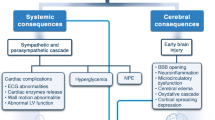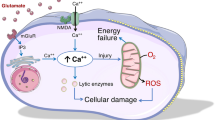Abstract
Background
Limited data exist regarding the optimal clinical trial design for studies involving persons with disorders of consciousness (DoC), and only a few therapies have been tested in high-quality clinical trials. To address this, the Curing Coma Campaign Clinical Trial Working Group performed a gap analysis on the current state of clinical trials in DoC to identify the optimal clinical design for studies involving persons with DoC.
Methods
The Curing Coma Campaign Clinical Trial Working Group was divided into three subgroups to (1) review clinical trials involving persons with DoC, (2) identify unique challenges in the design of clinical trials involving persons with DoC, and (3) recommend optimal clinical trial designs for DoC.
Results
There were 3055 studies screened, and 66 were included in this review. Several knowledge gaps and unique challenges were identified. There is a lack of high-quality clinical trials, and most data regarding patients with DoC are based on observational studies focusing on patients with traumatic brain injury and cardiac arrest. There is a lack of a structured long-term outcome assessment with significant heterogeneity in the methodology, definitions of outcomes, and conduct of studies, especially for long-term follow-up. Another major barrier to conducting clinical trials is the lack of resources, especially in low-income countries. Based on the available data, we recommend incorporating trial designs that use master protocols, sequential multiple assessment randomized trials, and comparative effectiveness research. Adaptive platform trials using a multiarm, multistage approach offer substantial advantages and should make use of biomarkers to assess treatment responses to increase trial efficiency. Finally, sound infrastructure and international collaboration are essential to facilitate the conduct of trials in patients with DoC.
Conclusions
Conduct of trials in patients with DoC should make use of master protocols and adaptive design and establish international registries incorporating standardized assessment tools. This will allow the establishment of evidence-based practice recommendations and decrease variations in care.

Reproduced from Park et al. [28]
Similar content being viewed by others
Source of Support
S-MC is funded by National Heart, Lung, and Blood Institute grant 1K23HL157610.
References
Provencio JJ, Hemphill JC, Claassen J, et al. The curing coma campaign: framing initial scientific challenges-proceedings of the first curing coma campaign scientific advisory council meeting. Neurocrit Care. 2020;33(1):1–12. https://doi.org/10.1007/s12028-020-01028-9.
Mainali S, Aiyagari V, Alexander S, et al. Proceedings of the second curing coma campaign nih symposium: challenging the future of research for coma and disorders of consciousness. Neurocrit Care. 2022;37(1):326–50. https://doi.org/10.1007/s12028-022-01505-3.
Edlow BL, Sanz LRD, Polizzotto L, et al. Therapies to restore consciousness in patients with severe brain injuries: a gap analysis and future directions. Neurocrit Care. 2021;35(Suppl 1):68–85. https://doi.org/10.1007/s12028-021-01227-y.
Moher D, Liberati A, Tetzlaff J, Altman DG, Group P. Preferred reporting items for systematic reviews and meta-analyses: the PRISMA statement. PLoS Med. 2009;6(7):1000097. https://doi.org/10.1371/journal.pmed.1000097.
Helbok R, Rass V, Beghi E, et al. The curing coma campaign international survey on coma epidemiology, evaluation, and therapy (Come Together). Neurocrit Care. 2022;37(1):47–59. https://doi.org/10.1007/s12028-021-01425-8.
Giacino JT, Whyte J, Bagiella E, et al. Placebo-controlled trial of amantadine for severe traumatic brain injury. N Engl J Med. 2012;366(9):819–26. https://doi.org/10.1056/NEJMoa1102609.
Berry DA. Emerging innovations in clinical trial design. Clin Pharmacol Ther. 2016;99(1):82–91. https://doi.org/10.1002/cpt.285.
Cinnella G. Enrolling patients into multiple trials: it is time for glasnost*. Crit Care Med. 2015;43(2):485–6. https://doi.org/10.1097/CCM.0000000000000756.
Gertner E. COVID-19 trial co-enrolment and subsequent enrolment. Lancet. 2020;396(10249):461–2. https://doi.org/10.1016/S0140-6736(20)31537-3.
Vanderbeek AM, Bliss JM, Yin Z, Yap C. Implementation of platform trials in the COVID-19 pandemic: a rapid review. Contemp Clin Trials. 2022;112:106625. https://doi.org/10.1016/j.cct.2021.106625.
Woodcock J, LaVange LM. Master protocols to study multiple therapies, multiple diseases, or both. N Engl J Med. 2017;377(1):62–70. https://doi.org/10.1056/NEJMra1510062.
Wallace M, Moodie EEM, Stephens DA. SMART thinking: a review of recent developments in sequential multiple assignment randomized trials. Curr Epidemiol Rep. 2016;3:225–32.
Williams CM, Skinner EH, James AM, Cook JL, McPhail SM, Haines TP. Comparative effectiveness research for the clinician researcher: a framework for making a methodological design choice. Trials. 2016;17(1):406. https://doi.org/10.1186/s13063-016-1535-6.
Kowalski RG, Hammond FM, Weintraub AH, et al. Recovery of consciousness and functional outcome in moderate and severe traumatic brain injury. JAMA Neurol. 2021;78(5):548–57. https://doi.org/10.1001/jamaneurol.2021.0084.
Hocker S, Shah S, Vespa P, et al. The future of neurocritical care research: proceedings and recommendations from the fifth neurocritical care research network conference. Neurocrit Care. 2020;32(1):311–6. https://doi.org/10.1007/s12028-019-00767-8.
Suarez JI, Geocadin R, Hall C, et al. The neurocritical care research network: NCRN. Neurocrit Care. 2012;16(1):29–34. https://doi.org/10.1007/s12028-011-9612-x.
Claassen J, Akbari Y, Alexander S, et al. Proceedings of the first curing coma campaign NIH symposium: challenging the future of research for coma and disorders of consciousness. Neurocrit Care. 2021;35(Suppl 1):4–23. https://doi.org/10.1007/s12028-021-01260-x.
Olson DM, Hemphill JC, Provencio JJ, et al. The curing coma campaign and the future of coma research. Semin Neurol. 2022;42(3):393–402. https://doi.org/10.1055/a-1887-7104.
Hill KD, Kannankeril PJ, Jacobs JP, et al. Methylprednisolone for heart surgery in infants—a randomized. Controlled Trial N Engl J Med. 2022;387(23):2138–49. https://doi.org/10.1056/NEJMoa2212667.
Lee B, Gately L, Lok SW, et al. Leveraging comprehensive cancer registry data to enable a broad range of research, audit and patient support activities. Cancers (Basel). 2022. https://doi.org/10.3390/cancers14174131.
Lewis A, Young MJ, Rohaut B, et al. Ethics along the continuum of research involving persons with disorders of consciousness. Neurocrit Care. 2023. https://doi.org/10.1007/s12028-023-01708-2.
Del Álamo M, Bührer C, Fisher D, et al. Identifying obstacles hindering the conduct of academic-sponsored trials for drug repurposing on rare-diseases: an analysis of six use cases. Trials. 2022;23(1):783. https://doi.org/10.1186/s13063-022-06713-y.
Hakoum MB, Jouni N, Abou-Jaoude EA, et al. Characteristics of funding of clinical trials: cross-sectional survey and proposed guidance. BMJ Open. 2017;7(10):e015997. https://doi.org/10.1136/bmjopen-2017-015997.
Sismondo S. Epistemic corruption, the pharmaceutical industry, and the body of medical science. Front Res Metr Anal. 2021;6:614013. https://doi.org/10.3389/frma.2021.614013.
Hudson KL, Lauer MS, Collins FS. Toward a new era of trust and transparency in clinical trials. JAMA. 2016;316(13):1353–4. https://doi.org/10.1001/jama.2016.14668.
Roustit M, Demarcq O, Laporte S, et al. Therapie. 2023;78(1):19–28. https://doi.org/10.1016/j.therap.2022.11.011.
Mott M, Janis S, Koroshetz WJ. StrokeNet takes off: national institute of neurological disorders and stroke organizational update. Stroke. 2016;47(3):e51–2. https://doi.org/10.1161/STROKEAHA.115.012063.
Park JJH, Siden E, Zoratti MJ, et al. Systematic review of basket trials, umbrella trials, and platform trials: a landscape analysis of master protocols. Trials. 2019;20(1):572. https://doi.org/10.1186/s13063-019-3664-1.
Author information
Authors and Affiliations
Consortia
Contributions
S-MC, CR, and JIS wrote the initial draft of the manuscript. S-MC and CR contributed equally as first authors. All coauthors edited the manuscript and approved the final content.
Corresponding author
Ethics declarations
Conflicts of Interest
None.
Ethical Approval/Informed Consent
New data were not acquired or analyzed for this article, and therefore there was no need for informed consent or approval from an institutional review board.
Additional information
Publisher's Note
Springer Nature remains neutral with regard to jurisdictional claims in published maps and institutional affiliations.
Supplementary Information
Below is the link to the electronic supplementary material.
Rights and permissions
Springer Nature or its licensor (e.g. a society or other partner) holds exclusive rights to this article under a publishing agreement with the author(s) or other rightsholder(s); author self-archiving of the accepted manuscript version of this article is solely governed by the terms of such publishing agreement and applicable law.
About this article
Cite this article
Cho, SM., Robba, C., Diringer, M.N. et al. Optimal Design of Clinical Trials Involving Persons with Disorders of Consciousness. Neurocrit Care 40, 74–80 (2024). https://doi.org/10.1007/s12028-023-01813-2
Received:
Accepted:
Published:
Issue Date:
DOI: https://doi.org/10.1007/s12028-023-01813-2




